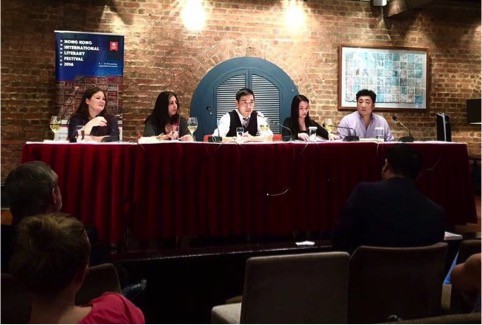This week, our writers bring you news from El Salvador, where the country’s last remaining indigenous language, Náhuat, has been celebrated; the Czech Republic, where coronavirus is having a huge impact on the book market; and Hong Kong, where organizations such as PEN are using digital initiatives to promote literature during this period of social distancing. Read on to find out more!
Nestor Gomez, Editor-at-Large, reporting from El Salvador:
Since 2017, Salvadorans have celebrated the National Day of the Náhuat Language. The holiday is in accordance with other international celebrations of ancestral languages as proclaimed by the United Nations in 1999. The National Day of the Náhuat Language is part of an ongoing effort over the past several years to revitalize Náhuat language and culture. Náhuat is the last existing indigenous language of El Salvador; its other indigenous languages of Lenca and Cacaopera/Kakawira are extinct.
El Salvador has had a deeply traumatic history concerning its indigenous population. Its most infamous historical event was in 1932, La Matanza, in which the Salvadoran government suppressed a peasant rebellion and killed over ten thousand protesters, many of them Pipil, the people of Náhuat culture and language. Because of events like La Matanza, the indigenous populations opted to forget their culture and languages, and instead learned and spoke only Spanish, in fear of being revealed as indigenous and executed.
In the past decade, two documentaries have come out focusing on the lives of indigenous people currently living in the few remaining towns where Náhuat is still spoken: the first documentary was released in 2013 and directed by Sergio Sibrían; the second documentary was released in 2015 and directed by Roberto Kofman. READ MORE…




